

德中经济联合会 | Deutsch-Chinesische Wirtschaftsvereinigung e.V.
自1987年以来,德中经济联合会(DCW)作为独立性、非营利性机构,一贯致力于促进中国和德国双边经贸合作。联合会为会员及合作伙伴提供广泛交流的可能性,以扩大双边的投资和贸易往来,为双方创造更好的合作环境。
德中经济联合会是其成员与合作伙伴交换经验、扩展人脉的平台。我们诚挚地邀请您加入我们,同我们的370家成员企业、组织、专家、管理者一道,关心并促进德中经济联合会的发展,并从这个日益壮大的组织中获益无穷。
董事长:贺可乐 | Alexander Hoeckle 先生
德中经济联合会董事长
联系人:白希可 | Silke Besser 女士
秘书长
Deutsch-Chinesische Wirtschaftsvereinigung e.V.
Unter Sachsenhausen 10–26
50667 Köln (Cologne)
GERMANY/德国
电话: +49 221 120-370
传真: +49 221 120-417
电邮:
网站: www.dcw-ev.de
 德国
德国
Economy at a glance
Germany has the largest population and the largest economy of all countries in the European Union. Its particular competitiveness lies in engineering expertise, especially the development and international marketing of technology-based “smart solutions”.
了解更多⋯⋯
Small and medium-sized enterprises are considered the backbone of the German economy. These “Mittelstand” companies are often owner-managed and focus on narrow product portfolios while striving for international quality leadership. At the same time, Germany’s industrial giants – particularly in the automotive, chemical and machinery industries – expand globally through steady product and process innovation. German enterprises are quick to adjust to global trends, not least thanks to their independence from government interference.
Germany has 80.2 million inhabitants and a GDP per capita of €32,280 (2012). In 2013, Germany’s real GDP grew by 0.4%, compared to an average growth of 0.1% in the Eurozone. Productivity per working hour is 126% of the EU average (2012).
At €195,200, Germany’s mean household wealth is comparable to the Eurozone average of €230,800. However, due to lower rates of home ownership, the distribution of household wealth is more unequal than in other European countries. As a result, Germany records the lowest median household wealth of all euro area countries (€51,400 in Germany compared to an average of €109,200). With a Gini value of 28.3% in 2012, income inequality in Germany is slightly below the EU average of 30.6%.
As one of Europe’s most export-oriented countries, Germany exports the equivalent of 52% of its total GDP (2012) – compared to 32% in the UK, 27% in France and 27% in China. The country recorded a current account surplus of 7.4% of its total GDP in 2013, compared to 2.4% in China and negative 2.7% in the United States.
Trade Relations with China
China and Germany are the world’s two leading export nations. Europe is China’s most important export destination, and Germany is China’s most important export destination in Europe.
了解更多⋯⋯
Germany’s exports to China have grown from just over €9 billion in 2000 to more than €67 bn in 2013. The engineering sector dominates German exports to China. Cars and other vehicles account for one quarter of Germany’s exports to China. Machinery and related products account for another quarter (each 26% in 2013). Germany’s optical industry, the aviation industry and chemical goods manufacturers are also major beneficiaries of Chinese demand for “made in Germany”.
Imports from China increased from €18 bn in 2000 to €73 bn in 2013. China is now Germany’s second most source of import, only preceded by the trade hub Netherlands. Electrical and electronic products amount to about one quarter of German imports from China (27%) and machinery products to about one fifth (21%). While garments, furniture and toys used to be among the most important import goods, their share is decreasing rapidly as China’s exports become more technically advanced.
Investments in China
German companies have a long history of direct investment in China. Many of Germany’s multinational corporations were among the first foreign investors in China. Since the beginning of China’s reform and opening period in the late 70s and 80s, many Mittelstand enterprises have entered the market and grown rapidly. The Bundesbank estimates that revenues by German companies in China doubled between 2000 and 2005 (€16.6 bn to €31.1 bn) and rose more than five times between 2005 and 2011 (€31.1 bn to €166 bn).
了解更多⋯⋯
According to a survey by the German Chambers of Commerce (DIHK), China was the most important destination of direct investment by international German enterprises in 2013. 43% of German industrial companies with investments abroad planned investments in China – compared to 40% in other EU countries and 30% in North America.
Official FDI data confirms German companies’ unprecedented interest in investments in China. German investments in China increased by 42% to $2.1 bn, considering only the investments that were tracked by China’s Ministry of Commerce (MOFCOM). This came at a time when investments from other major investors, such as South Korea, Japan and the United Kingdom, either stagnated or fell, and investment from the US increased by 7%.
Chinese Investments in Germany
Germany is the number one destination for Chinese industrial investment in Europe. Chinese investors choose Germany for strategic reasons: Firstly, they are a way to build world-class product portfolios, thanks to the skilled labour force and the good infrastructure. Secondly, the investments help them to expand in Europe and internationally. These two points make Germany a preferred choice for outbound investment in the context of China’s “Going Out” policy.
了解更多⋯⋯
Chinese investors also value the long-term sustainability of industrial investments in Germany. According to the report “Country Risk Ratings of Chinese Overseas Investment” by the Chinese Academy of Social Sciences, published In November 2013, Germany offers the lowest risk of all major recipients of Chinese direct investment. Out of all countries in the report, Germany is the only country that received the best possible rating (AAA).
Chinese investment in Germany is spread over a variety of industries. Major recipients of Chinese investment include the machinery, automotive and chemical industries, as well as telecommunications, energy and other sectors. They come both in the form of new green field ventures and in the form of takeovers of established companies. 2012 and 2013 have seen unprecedented numbers of Chinese acquisitions in Germany, including several high-profile takeovers of German machinery producers.

